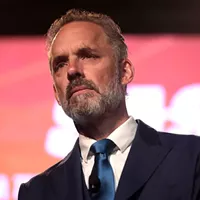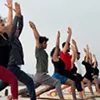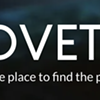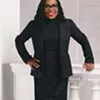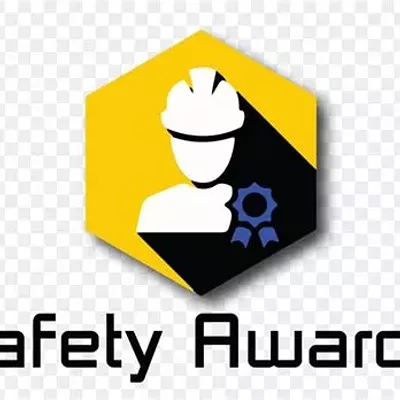Not since Vietnam has the "love it or leave it" mentality of some Americans been so at odds with those who question government policies. And just like during the Vietnam era, people are challenging the charge that folks who question the President and his polices are any less patriotic than those who support the war.
Todd Gitlin, an author and professor of journalism and sociology at Columbia University, wrote in a recent article entitled "Patriotism Demands Questioning Authority," ". . .questioning is precisely what authority needs. In a democracy, authority needs to convince those it governs. To be convincing, it must be willing and able to defend itself, even - especially -- when pointed questions are asked."
Many who oppose various government policies, from conservatives calling for smaller government, to liberals who want to help the poor, do so out of a genuine sense that their beliefs will make the US a better country -- in other words, they're concerned about the well-being of the nation. . . as in, "patriotic."
These days, the same goes for opponents of the war in Iraq. Critics are quick to point out that their vocal opposition stems from what they see as this particular war's corrosive effect on America. To critics of the war and Bush administration foreign policy say it's not only their right, but their duty as Americans to stand up and speak out if they feel an injustice is being committed -- even if that injustice is being committed by their President. After all, the United States itself was launched by our willingness to not only question, but challenge and ultimately overthrow authority. That freedom of debate and opinion is what the Fourth of July is all about.
We spoke to some Charlotteans who have been outspoken in their opposition to the war to see how they define patriotism, and how it fits into their current views.
A. Malcolm Campbell, Ph.D., Associate Professor of Biology, Davidson College. Campbell organized and led student discussion groups following 9/11.
Patriotism isn't following your leader regardless of what the leaders say. That's more like a dictatorship or a monarchy. Patriotism is standing up for what you believe in, and supporting your country. In a democracy, by definition, you're supposed to have opposing views.
It's pretty shocking when people accuse me of hating America because of my views toward the war. When I hear people make those accusations, it has to be out of personal fear or anger. We're not calling American troops baby killers like some people did with Vietnam. We're not blaming the troops, we're blaming the policies that they're being forced to abide.
At one point it was unpatriotic to oppose the Vietnam War and then it became the majority. I would have to believe that people who supported the war before we invaded Iraq have to feel differently now, given the fact that were no WMDs. Everyone is basically saying we made a mistake. So to say I opposed the war then and I oppose it now is not the same as saying I want our troops to get hurt. I don't want the Iraqi people to get to hurt, either. Does that make me unpatriotic? I don't think so. It seems to me that any country that wants to be a shining beacon should be able to say we made a mistake.
Rev. Chris Ayers, Pastor at Wedgewood Baptist Church. Ayers has participated in actions to protest the Iraq war.
I think patriotism is wanting a country to live up to its best virtues and qualities. Anytime an American calls others to do that, then I think that's being patriotic. We live in a country where we frankly have the right and obligation to critique each other and our policies.
Unfortunately, many of us put our nation before the world. We need to have a world vision as a people of God. Blind patriotism is dangerous. What scares me about President Bush is that he's become a bully to the world. When I was in first grade we had a bully in the class. And we found the best way to deal with the bully was as a group. But we also became aware that in dealing with a bully we also became bullies. It seems to me that's what's happened with the US in dealing with Saddam Hussein.
We're a politically divided country. From a Christian church standpoint, we're pretty divided as well. We have a lot of different value systems going on. The value system I represent is one that celebrates diversity and is concerned about the poorest of the poor and justice. We have quite a few gay and lesbian people in our congregation. We tend to attract a lot of people who the Bush administration would say are not patriotic. But I would say these people are not only good Americans, but even more importantly, wonderful Christians.
Speaking of News_feature.html
-
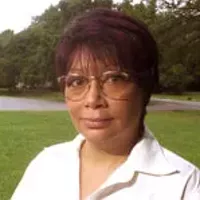
When HIV comes home
Jul 20, 2005 -
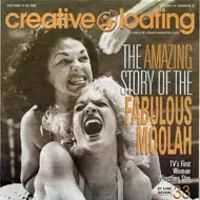
Rasslin' Pioneers
Jul 13, 2005 -

Geddings on McCrory: "This guy is vulnerable"
Jul 6, 2005 - More »
Latest in News Feature
More by Sam Boykin
-
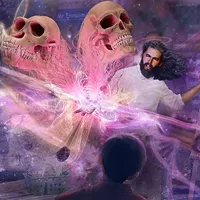
Divine evolution
Nov 11, 2015 -

The Agony & The Ecstasy
Jun 21, 2012 -

'Dynamite' diet with nutritionist Angela Gallo
Jan 18, 2011 - More »



